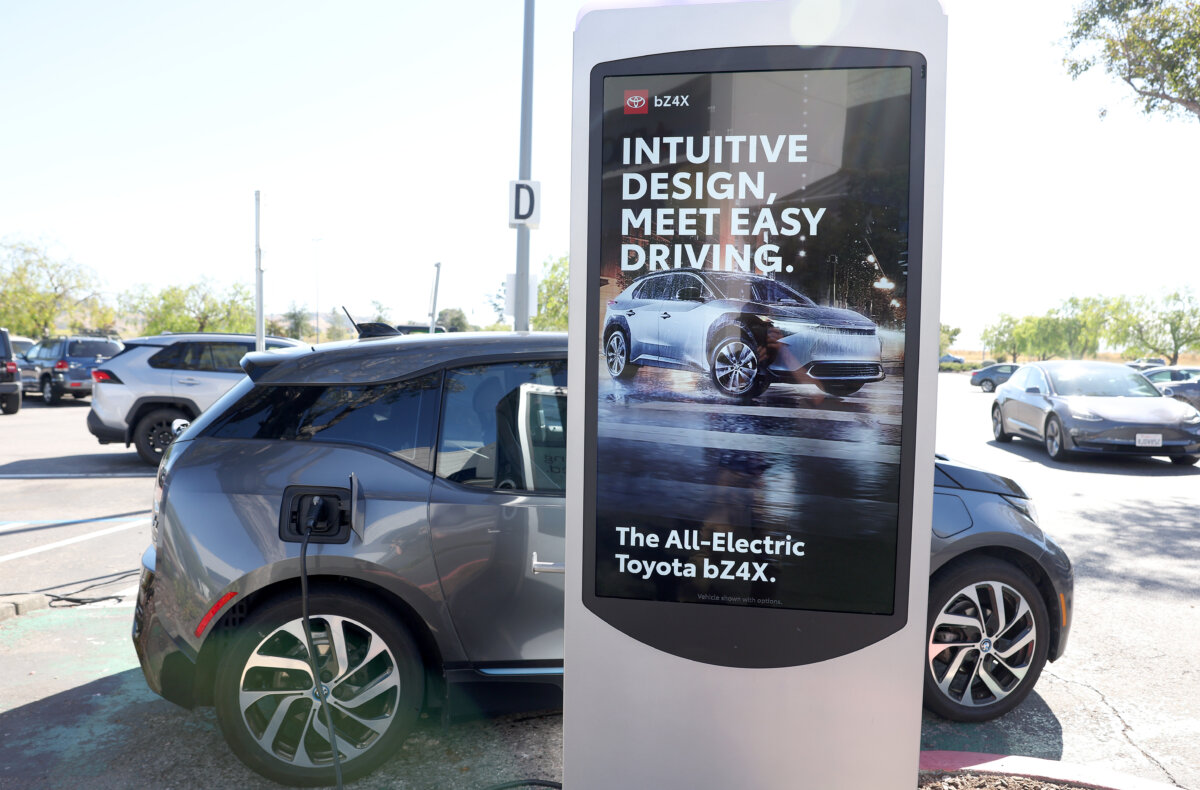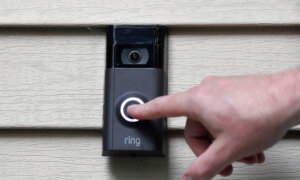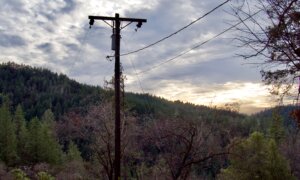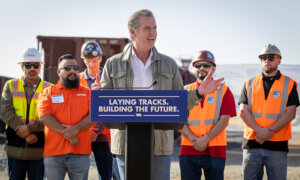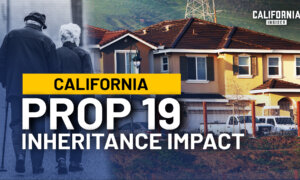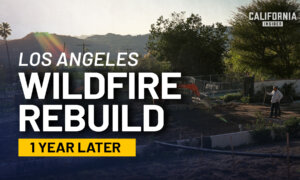Electric vehicle sales showed signs of slowing in California last year, despite the state’s aggressive zero-emissions climate goals, the California New Car Dealers Association reported.
Overall, however, the state’s year-end auto sales report by the association showed electric vehicle sales climbed by about 46 percent for the year, compared to 2022.
Last year’s sales started out strong as buyers in the state scooped up about 191,000 new electric vehicles by the end of June. Then, sales began to drop off slightly in the third and fourth fiscal quarters from July through December, dipping about 10 percent.
Gov. Gavin Newsom said he wasn’t worried about the slight sales decrease, attributing it to a slowdown of all automobile purchases statewide.
“Automobile numbers dropped generally in [the fourth quarter],” Mr. Newsom said during a press conference Feb. 20. “Do I worry about one quarter? No. That’s a talking point coming from the fossil fuel lobby.”
In fact, from July through September last year, California’s electric vehicle market share rose to its highest level ever, according to the governor’s spokesman Alex Stack.
“There wasn’t a slowdown in [electric vehicle] sales last year,” Mr. Stack told The Epoch Times.
“Last year was the highest ever EV sales in [California] history, both in raw numbers and as a share of overall vehicles sold. Sales are up 1,022 percent from a decade ago.”
Buyers purchased 381,000 new electric vehicles in California in 2023, compared with nearly 261,000 in 2022, the dealers association reported.
The governor said the state will continue to dominate the electric vehicle market. The state will also achieve its goal of 100 percent zero-emissions new car sales by 2035, according to his office.
“We think this is the greatest economic opportunity in our state,” Mr. Newsom said during the press conference.
Tesla, the electric vehicle luxury carmaker with roots in California, continued to dominate last year in the Golden State.
Tesla’s Model Y remained the top-selling car in the electric and plug-in hybrid market, capturing nearly 40 percent of market share for that category, according to the report.
In 2023, Tesla sales jumped by nearly 25 percent, from 185,090 in 2022 to 230,589. The EV carmaker’s market share also rose 1.3 percent for the year. But the carmaker’s California sales from October through December dropped by about 10 percent in 2023, compared to the same time frame in 2022.
“While Tesla remains California’s [electric vehicle] market share leader, its lead is diminishing as traditional automakers roll out new electric models,” the association wrote in a press release Jan. 29.
The state’s top three selling electric and plug-in hybrid models were the Tesla Model Y, Tesla Model 3, and the Chevy Bolt. The Jeep Wrangler came in fourth place and remained the best-selling plug-in hybrid in the state last year, according to the report.
Although Tesla’s California sales slowed in the last three months of 2023, the carmaker continued to increase sales worldwide. Tesla posted a nearly 10 percent increase worldwide in automotive revenues during that same time compared to the previous three months, despite reducing vehicle prices during the year.
Tesla’s Model Y also became the best-selling vehicle in the world. The company delivered over 1.2 million Model Ys in 2023, according to the company’s year-end report.
Electric expansion
California’s Energy Commission approved a $1.9 billion plan to expand zero-emission transportation infrastructure on Feb. 14. The state-funded plan sets out a roadmap to help deploy the country’s most extensive EV charging and hydrogen refueling network in the county, according to the commission.
The commission’s four-year Clean Transportation Program will target at least half of the money to benefit “priority” populations, which include low-income, disadvantaged, rural, and tribal communities, according to a Feb. 14 news release.
The commission also approved an assessment of what is needed for the state’s charging infrastructure. The state expects 7.1 million EVs by 2030, which will require 1 million chargers, according to the commission. Also, 155,000 electric trucks and buses will need 114,500 chargers.
By 2035, the state expects the number of EVs to more than double, reaching 15.2 million. These will require 2.1 million chargers, according to the assessment. The number of electric trucks and buses will reach 377,000 and need 263,000 chargers, the commission reported.
